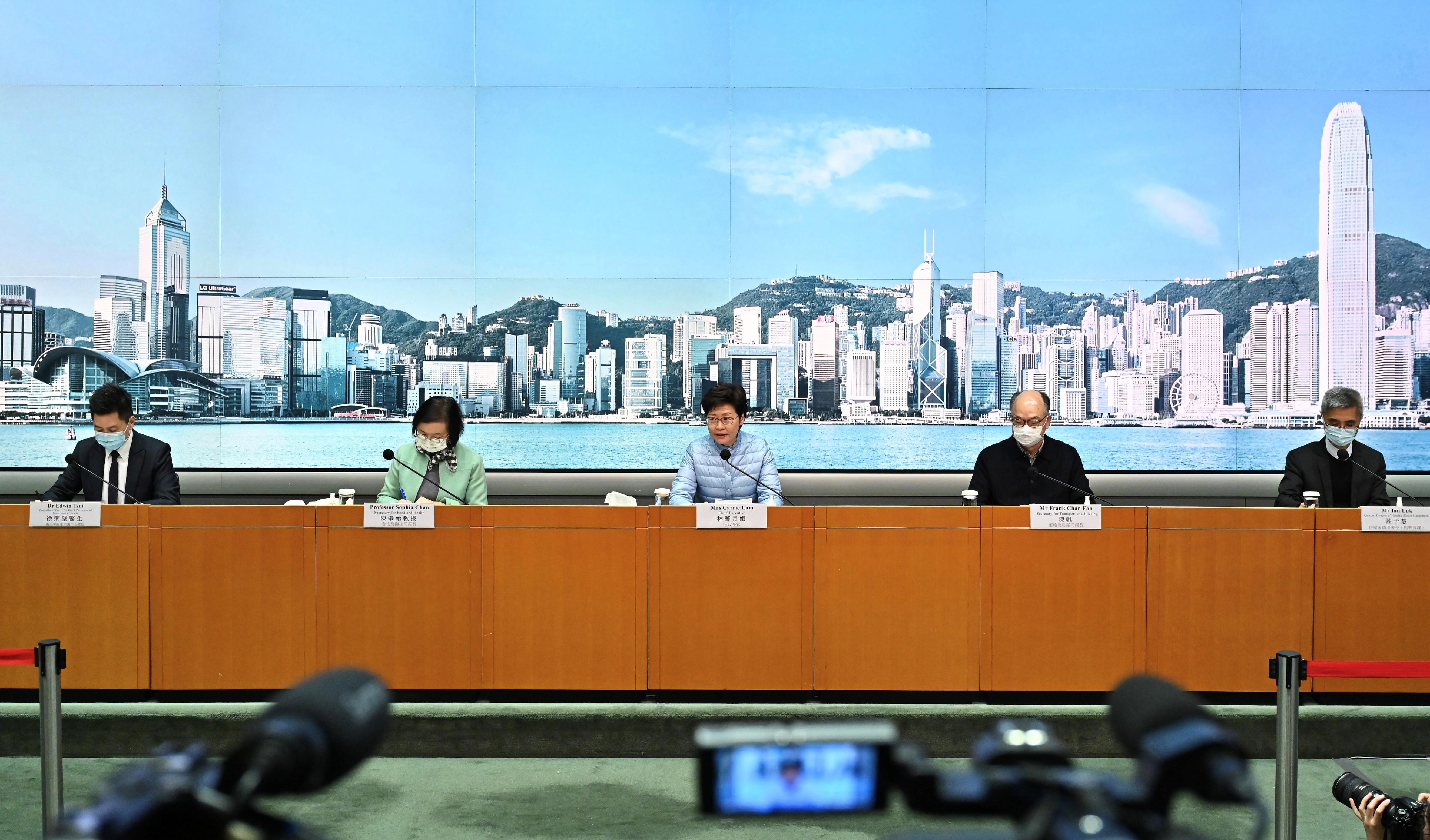Government extends the period of operation under the “restriction-testing declaration” and compulsory testing notice at Ying Kwai House in Kwai Chung Estate
The Government yesterday (January 21) exercised the power under the Prevention and Control of Disease (Compulsory Testing for Certain Persons) Regulation (Cap. 599J) to make a "restriction-testing declaration" (declaration) effective from 4am today (January 22), under which people (hereafter referred to as "persons subject to compulsory testing") within the specified "restricted area" in Kwai Chung (i.e. Ying Kwai House, Kwai Chung Estate. See Annex.) are required to stay in their premises and undergo compulsory testing. The Government today decided to extend the period of operation and aims at finishing the exercise at about 7am on January 27. Persons subject to compulsory testing are required to stay in their premises and undergo five tests under designated arrangement, until all such persons identified in the "restricted area" have undergone testing and the test results are mostly ascertained, and upon agreement of the Secretary for Food and Health having regard to all the circumstances and public interest of Hong Kong.
The Government spokesman said, "A number of preliminary tested positive cases have been identified at Ying Kwai House of Kwai Chung Estate following the tests this morning. At least eight confirmed cases or preliminary tested positive cases were found since then, which is worrying. In view of the significant risk of infection at Ying Kwai House of Kwai Chung Estate, we consider it necessary to undertake determined action by extending the 'restriction-testing declaration' operation to January 27 to prevent the virus from further spreading."
The Government has set up temporary specimen collection stations at the "restricted area" and requested persons subject to testing to undergo testing as designated between January 22 and January 26. Arrangements have been made for persons subject to testing to undergo a nucleic acid test at specimen collection stations where dedicated staff will collect samples through combined nasal and throat swabs. Persons subject to testing must stay at their place of residence until all test results are ascertained to avoid cross-infection risk. The Government will arrange for door-to-door specimen collection for people with impaired mobility and elderly persons. As a mutant strain is involved, and having considered relevant infection risks, for prudence's sake, vaccinated persons and persons who have recently been tested are also required to undergo testing.
The Government spokesman said, "We understand that this exercise will cause inconvenience to the public. We sincerely appeal to the co-operation of residents of Ying Kwai House (including those who are at work and not currently at the premises) to return to their household rather than move out the premises and comply with the testing arrangement. For those who have visited Ying Kwai house in the past two weeks for more than two hours, they should undergo testing on January 23, 24, 25 and 28 in accordance with the compulsory testing notice issued earlier. The Government will make a public announcement when the declaration expires officially."
In order to maintain public and emergency services within the "restricted area", the Government and relevant working staff (such as healthcare officers and other officers of the Hospital Authority, testing service providers engaged by the Government, and cleaning service providers etc.) are allowed to enter and leave the "restricted area" on condition that personal information and contacts are given, as well as certain infection control instructions are followed (including undergoing testing before leaving the "restricted area" without the need to wait for the test results). In the cases in which employees are unable to go to work because of the declaration, the Government hopes their employers can exercise discretion and not deduct the salaries or benefits of the employees."
If staying in the "restricted area" will cause unreasonable hardship to individuals who are not residents in the area when the declaration takes effect, government officers may exercise discretion and allow that person to leave the area after considering the individual circumstances. That person must have followed the instructions to undergo testing and leave his/her personal information for contact purposes.
The Housing Department has set up hotline (Tel: 2427 9006) which have started operation at 7am today for residents restricted by the declaration to make enquiries and seek assistance. The Social Welfare Department will also provides assistance to the affected persons.
The Government appeals to persons subject to compulsory testing for their full co-operation by registering and undergoing testing, and waiting for the results patiently at home. The Government will strictly follow up on whether the persons concerned have complied with the compulsory testing notices and "restriction-testing declaration". Any person who fails to comply with the compulsory testing notices commits an offence and may be fined a fixed penalty of $5,000. The person would also be issued with a compulsory testing order requiring him or her to undergo testing within a specified time frame. Failure to comply with the compulsory testing order or the "restriction-testing declaration" is an offence and the offender would be liable to a fine at level 4 ($25,000) and imprisonment for six months.
